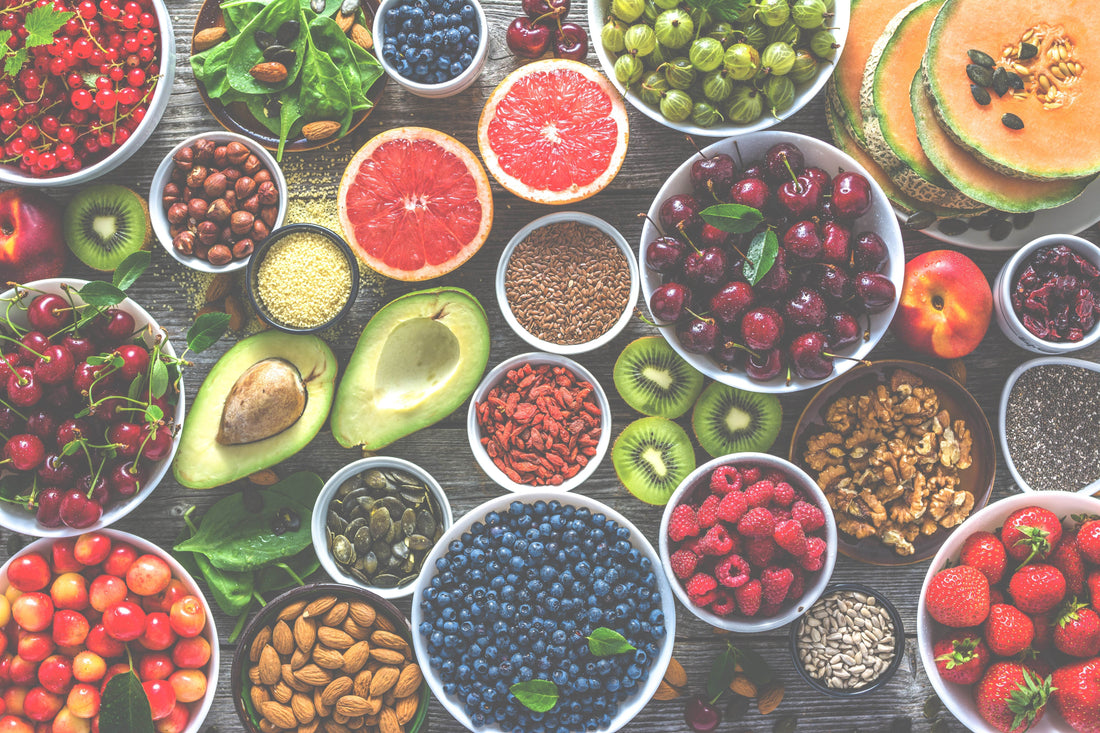
Nutrition
What to Eat and What to Avoid to Prevent Cancer
By Mind²
Cancer prevention starts with a healthy diet. Research shows that what we eat can influence our risk of developing cancer. A diet rich in antioxidants, anti-inflammatory foods, and essential nutrients can help protect cells from damage, while processed and unhealthy foods may increase the risk. Below is a comprehensive guide on cancer-preventive nutrition.
Foods to Eat for Cancer Prevention
1. Fruits and Vegetables
Fruits and vegetables contain a variety of bioactive compounds that support cellular health and reduce inflammation. These include vitamins, minerals, fiber, and antioxidants, which help neutralize free radicals and prevent cell damage.
Best Choices:
- Cruciferous vegetables (broccoli, cauliflower, Brussels sprouts, kale) – Contain sulforaphane, which may detoxify carcinogens and prevent tumor growth.
- Berries (strawberries, blueberries, raspberries) – High in antioxidants like anthocyanins, vitamin C, and ellagic acid, which help protect DNA from damage.
- Leafy greens (spinach, Swiss chard, collard greens) – Rich in folate, fiber, and carotenoids, which may reduce the risk of lung, stomach, and esophageal cancers.
- Carrots and sweet potatoes – High in beta-carotene, which supports immune function and may lower the risk of certain cancers, such as breast and lung cancer.
- Tomatoes – Contain lycopene, a powerful antioxidant linked to lower risks of prostate, breast, and lung cancers. Cooking tomatoes enhances lycopene absorption.
- Citrus fruits (oranges, lemons, grapefruits) – Packed with vitamin C and flavonoids that protect against cell damage and inflammation.
2. Whole Grains
Whole grains like brown rice, quinoa, oatmeal, bulgur, and whole wheat contain fiber, which helps with digestion and supports a healthy gut microbiome. Fiber aids in removing carcinogens from the digestive tract, reducing the risk of colorectal cancer.
Key Nutrients in Whole Grains:
- Lignans and phytoestrogens – Found in whole grains like flaxseeds and barley, they may help regulate hormones and lower the risk of hormone-related cancers.
- Resistant starch – Present in foods like lentils, oats, and green bananas, it helps promote gut bacteria that produce protective short-chain fatty acids.
3. Healthy Fats
The type of fat you consume plays a critical role in cancer prevention. Omega-3 fatty acids, polyunsaturated fats, and monounsaturated fats reduce inflammation and promote cellular health.
Best Choices:
- Olive oil – Contains polyphenols and monounsaturated fats that have anti-inflammatory properties.
- Nuts and seeds (almonds, walnuts, flaxseeds, chia seeds) – Rich in omega-3 fatty acids and lignans, which have been shown to reduce breast cancer risk.
- Fatty fish (salmon, sardines, mackerel) – Provide omega-3 fatty acids that reduce inflammation and may lower the risk of colorectal and prostate cancers.
4. Legumes and Beans
Lentils, chickpeas, black beans, and soybeans are rich in fiber, protein, and antioxidants.
Cancer-Fighting Properties:
- Isoflavones in soy products (tofu, tempeh, miso) have been shown to lower the risk of hormone-dependent cancers, like breast and prostate cancer.
- Insoluble fiber in beans helps remove toxins from the digestive tract.
- Saponins and phytochemicals in legumes help prevent cancer cell replication.
5. Herbs and Spices
Certain spices contain potent bioactive compounds that have been linked to reduced cancer risk.
Best Choices:
- Turmeric – Contains curcumin, a powerful anti-inflammatory compound that inhibits cancer cell growth.
- Garlic and onions – Rich in sulfur compounds that support detoxification and may reduce stomach and colorectal cancer risk.
- Ginger – Contains gingerol, which has antioxidant and anti-inflammatory effects.
6. Green Tea
Green tea is packed with catechins, particularly epigallocatechin gallate (EGCG), which has been shown to slow cancer cell growth and prevent DNA damage.
Foods to Avoid to Reduce Cancer Risk
1. Processed Meats
Bacon, sausages, hot dogs, and deli meats contain nitrates and nitrites, which can form carcinogenic compounds when cooked at high temperatures. Regular consumption has been linked to colorectal and stomach cancers.
2. Red Meat in Excess
High consumption of red meat (beef, pork, lamb) has been associated with increased risks of colorectal, pancreatic, and prostate cancers. Limit intake to a few servings per week and opt for lean cuts or plant-based alternatives.
3. Sugary Foods and Drinks
A high sugar intake can lead to obesity, which is a risk factor for several cancers, including breast, colorectal, and pancreatic cancer. Processed sugar also spikes insulin levels, which can promote tumor growth.
4. Highly Processed Foods
Fast food, packaged snacks, and processed meals often contain:
- Artificial additives and preservatives
- High levels of sodium, which may increase stomach cancer risk
- Refined sugars and unhealthy fats that contribute to inflammation
5. Alcohol
Excessive alcohol consumption increases the risk of several cancers, including liver, breast, and esophageal cancer. It is recommended to limit intake to:
- No more than one drink per day for women
- No more than two drinks per day for men
6. Fried and Charred Foods
Cooking at high temperatures, such as frying, grilling, or barbecuing, can create harmful compounds like:
- Heterocyclic amines (HCAs) – Found in charred meats and associated with DNA damage.
- Polycyclic aromatic hydrocarbons (PAHs) – Formed when fat drips onto an open flame, linked to cancer risk.
Conclusion
A well-balanced diet rich in whole, unprocessed foods can play a crucial role in cancer prevention. By incorporating more plant-based foods, healthy fats, and fiber while reducing processed and inflammatory foods, you can take proactive steps toward a healthier life. Remember, prevention is about making consistent, long-term dietary choices that support overall well-being.



